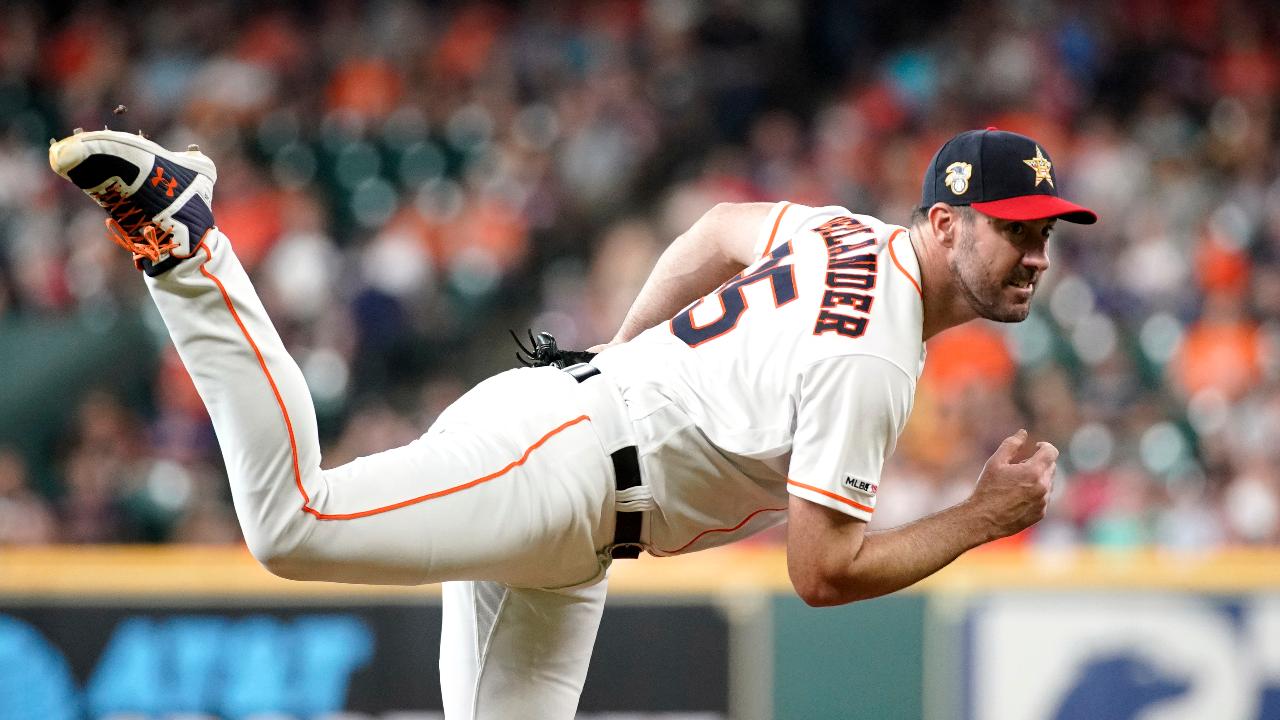MLB denies juicing baseballs amid home run surge
MLB Commissioner Rob Manfred on Tuesday pushed back on allegations from some players, including Houston Astros ace Justin Verlander, that the league has “juiced” baseballs amid an unprecedented home run surge.
MLB players have hit 3,691 home runs through the first half of the 2019 season and are on pace to hit 6,669 home runs for the full year. That total would smash baseball’s existing record of 6,105 home runs during the 2017 season.
Rawlings Sporting Goods has served as MLB’s official baseball manufacturer for decades, and the league partnered with private firm Seidler Equity to buy the company for $395 million in June 2018. Manfred said the league is working to determine why baseballs are producing less drag after contact, but denied that the trend is a result of deliberate changes dictated by the league.
"Pitchers have raised issues particularly about the tackiness and seams on the baseball and we do believe those could be issues. … Baseball has done nothing, given no direction for an alteration in the baseball,” Manfred said during a press conference prior to the 2019 All-Star Game.
MLB’s purchase of Rawlings came one month after a league-commissioned study found that baseballs were flying different than they had in years past. Both Verlander and Tony Clark, head of the MLB Players Association, have questioned whether MLB has exerted more control over the manufacturing process since it formally acquired Rawlings.
Rawlings could not immediately be reached for comment.
Days before the All-Star Game, Verlander said he was “100 percent” certain that MLB officials were intentionally juicing baseballs to spark offense.
"Major League Baseball's turning this game into a joke. They own Rawlings, and you've got Manfred up here saying it might be the way they center the pill,” Verlander said, according to ESPN. “They own the [expletive] company. If any other $40 billion company bought out a $400 million company and the product changed dramatically, it's not a guess as to what happened. We all know what happened.”
During an appearance earlier this week on ESPN Radio, Manfred acknowledged that scientists studying the baseball have noted it has “a little less drag” through the air this season. The league office is “trying to understand exactly why that happened,” he added.
CLICK HERE TO GET THE FOX BUSINESS APP
As home runs totals have risen over the last several decades, MLB officials have regularly faced allegations that the league was intentionally juicing baseballs. The league previously investigated the possibility in the late 1990s, former MLB Commissioner Bud Selig said during an appearance on FOX Business Network.
“Look, we went through the ball juicing back in 1999, 2000,” Selig said. “I had Sandy Alderson, who was then the head of baseball operations, and he went around he went to Haiti, went everywhere trying to figure out whether the ball was juiced and we never found any evidence that it was.”
The Associated Press contributed to this report.




















